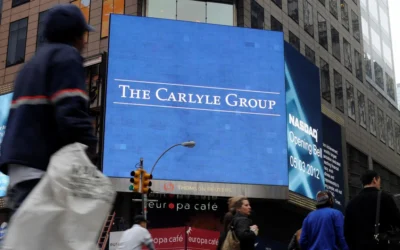Rich guys like to own professional sports teams. Private equity produces a lot of rich guys. So it’s little surprise that buyout billionaires have been snapping up NBA franchises for the past two decades.
In recent years, a few of those franchises have achieved unprecedented success. In fact, private equity tycoons have turned the league’s Eastern Conference into their own personal playground.
During the 2018-2019 season, the four top finishers in the East were all controlled by private equity pros, including the NBA champion Toronto Raptors. As the 2019-2020 season enters this weekend’s All-Star break, those same teams occupy four of the top five spots in the conference.
And all four ownership groups have at least one common factor in how they’ve achieved recent success, a trait that could tie back to their pasts in overseeing portfolio companies: Instead of meddling in every small decision, they’ve developed reputations for hiring the best talent available and getting out of the way.
PE’s basketball jones
The Milwaukee Bucks have been the NBA’s dominant team so far this season, sitting in first place in the East with a sparkling 46-8 record. The Bucks are co-owned by Wes Edens, a co-founder of Fortress Investment, and Marc Lasry, a co-founder of Avenue Capital, who teamed to acquire the franchise in 2014.
At second place in the East sit the defending champion Raptors. The Toronto franchise is owned by a group called Maple Leaf Sports & Entertainment, which is in turn partially owned by Larry Tanenbaum, chairman of Kilmer Capital Partners and the longtime CEO of Kilmer Van Nostrand. Tanenbaum represents the Raptors on the NBA’s Board of Governors (the league now eschews the word “owner”), making him the team’s most powerful dignitary.
The Boston Celtics occupy third place in the East standings. Since 2002, the legendary franchise has been owned by an investor group led by Wyc Grousbeck (formerly a partner at Highland Capital Partners) that also includes Steve Pagliuca, a co-chairman at Bain Capital. Grousbeck is the son of Irv Grousbeck, a professor at Stanford Graduate School of Business.
And fifth place in the East is currently filled by the Philadelphia 76ers, who in 2011 were acquired by a wide-ranging group of investors that includes Josh Harris, a co-founder of Apollo Global Management, and David Blitzer, global head of tactical opportunities at Blackstone. Harris is the team’s principal owner.
The combined record of these teams from the start of last season through Feb. 12: 375-170, good for a winning percentage just shy of 69%.
These are the most successful examples, but they aren’t the only NBA franchises owned by buyout barons. Tom Gores and Platinum Equity control the Detroit Pistons, while Ares Management co-founder Tony Ressler owns the Atlanta Hawks.
The venture capital world has plenty of NBA ties, too, most notably in the form of Golden State Warriors principal owner Joe Lacob, a former managing partner at Kleiner Perkins. The Cleveland Cavaliers (Dan Gilbert), Dallas Mavericks (Mark Cuban), Sacramento Kings (Vivek Ranadive), San Antonio Spurs (Peter Holt) and Washington Wizards (Ted Leonsis) are also all owned by men with experience in startup investing.
The managerial method
The owners of the Bucks, Raptors, Celtics and 76ers haven’t been busy conducting mass layoffs and paying themselves dividends. Instead, they’ve brought a different part of the private equity playbook into basketball.
All four franchises have gone to great lengths to find the right executives to run their basketball operations, and their ownership groups have then empowered those executives to make big, bold decisions without the fear of outside interference.
The bulk of the Bucks’ success should probably be attributed to the presence of Giannis Antetokounmpo, a preternaturally talented 7-footer with Gumby arms who’s known more simply as “The Greek Freak.” But the franchise didn’t ascend to the upper echelon of the NBA until hiring Mike Budenholzer as its head coach in 2018.
Budenholzer, who was named NBA Coach of the Year in 2015 with Atlanta, promptly reshaped the Bucks on both ends of the floor, employing an analytics-influenced approach that emphasizes three-point shots on offense and protecting the rim on defense. He was again named NBA Coach of the Year in his debut season, guiding Milwaukee to 60 wins for the first time since 1981.
In 2013, Masai Ujiri was named NBA Executive of the Year for his work as general manager of the Denver Nuggets. That same year, the Raptors plied Ujiri away from the Mile High City with a lucrative contract. In the years since, he’s turned Toronto into one of the NBA’s model franchises, showing a knack for uncovering hidden gems in the draft and a fearlessness matched by few other GMs. During the 2018 offseason, he made a risky trade for Kawhi Leonard that paid off in spades last June, when Leonard led the Raptors to their first title.
A year after Grousbeck and Co. took over in Boston, they handed control of the Celtics front office to former player Danny Ainge. Seventeen years, one NBA championship and one Executive of the Year award later, Ainge is still there, a sign of the ownership group’s unusual patience.
Perhaps the biggest coup of Ainge’s time in Boston was the hiring of Brad Stevens in 2013 as the Celtics head coach. Widely considered an up-and-coming coaching star, Stevens was in some ways an obvious choice. But he was also a 37-year-old who’d never coached in the NBA, and who in fact had only held one prior head-coaching job. The world of pro sports is often incredibly risk averse; the Celtics succeeded with Stevens by betting that the potential upside outweighed the danger.
As far as bold management practices, though, no one can match the 76ers. Two years after Harris and his investor group bought the team, they hired former management consultant Sam Hinkie as their GM. Hinkie ran the team like the Stanford MBA that he is, through a “process” that involved hoarding draft picks, trading away most of the team’s veterans and losing a whole lot of games. Tanking wasn’t unprecedented in the NBA, but Hinkie took it to a new extreme.
The idea was that the forward-thinking approach would lay the foundation for a future dynasty, but Hinkie never got to see the end result: All the losing proved to be too much, and Hinkie was forced out in 2016—reportedly at the urging of the NBA itself after lobbying from other owners upset with Hinkie’s iconoclasm.
But the 76ers succeeded in acquiring two potential superstars, in Joel Embiid and Ben Simmons, and the team has been a consistent winner in the years since Hinkie’s departure. Ownership made the right hire; they just didn’t have enough faith. Ultimately, Hinkie’s stint in Philadelphia revolutionized the NBA, sparking a wave of tanking imitators chasing a similar turnaround.
Proponents of private equity have long said that the industry is better than anyone else at running a company. If recent years are any indication, the same thing might be true of a basketball team.
Source: PitchBook
Can’t stop reading? Read more
Carlyle and Goldman Sachs open private credit funds to Willow users with $10,000 minimum
Carlyle and Goldman Sachs open private credit funds to Willow users with $10,000 minimum Carlyle,...
EQT, PAI, and Stone Point shortlisted for €2bn takeover of Castik-backed Global Group
EQT, PAI, and Stone Point shortlisted for €2bn takeover of Castik-backed Global Group EQT, PAI...
CAIS Advisors unveils retail vehicle giving investors a stake in elite sports and media
CAIS Advisors unveils retail vehicle giving investors a stake in elite sports and media Eldridge...




